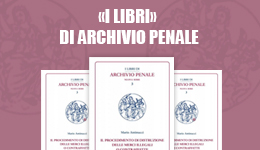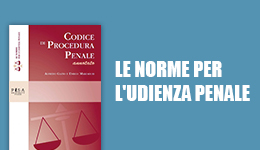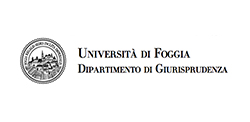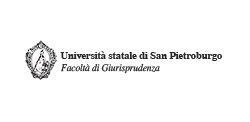Invio di corrispondenza non epistolare, regime speciale dell’art. 41-bis O.P. e tutela giurisdizionale
Archivio Penale
© dell'autore 2024
Ricevuto: 14 October 2024
| Accettato: 25 October 2024
| Pubblicato: 28 October 2024
L’intero articolo è disponibile
Riassunto
In una recente pronuncia la Corte di cassazione si esprime negativamente circa la facoltà, per un detenuto in regime speciale ex art. 41-bis O.P. di spedire un pacco postale al tutore legale. Il rigetto muove dall’asserita impossibilità di ricondurre la corrispondenza non epistolare al paradigma del diritto soggettivo, cui segue, come corollario, la mancata estensione delle garanzie di cui all’art. 35-bis O.P. Lo studio approfondisce il perimetro di tutela offerto dall’art. 15 Cost., indagando il concetto di corrispondenza non epistolare, così come disciplinato nel complesso panorama legislativo. Particolare attenzione è rivolta all’esame comparato delle disposizioni previste in materia dal diritto penitenziario, processuale penale e postale, per comprendere se l’esclusione del pacco dallo spettro di protezione costituzionale sia davvero così inequivocabile. Ne risulta una nozione frastagliata di corrispondenza, tale per cui non sembra improprio prospettare, in via interpretativa, la possibilità di includere nell’art. 15 Cost. anche l’involucro in parola e qualificare la volontà di inviarlo come una proiezione della libertà fondamentale protetta dalla fonte primaria. Infine, il contributo analizza come la soluzione proposta si concili con le finalità proprie del regime differenziato, alla luce del quadro normativo esistente.
Sending non-epistolary correspondence, the special regime of art. 41-bis O.P. and judicial protection
In a recent ruling, the Court of cassation expressed a negative opinion on the right of a detainee under special regime according to art. 41-bis O.P. to send a postal package to his legal guardian. The rejection is based on the alleged impossibility of bringing non-epistolary correspondence under the category of subjective right. This is followed, as a consequence, by the non-extension of the guarantees of art. 35-bis O.P. The study delves into the perimeter of protection offered by art. 15 of the Constitution, investigating the concept of non-epistolary correspondence as regulated in the complex legislative panorama. Particular attention is paid to the comparative examination of the provisions of prison law, criminal procedure and postal law, in order to understand whether the exclusion of the package from the spectrum of constitutional protection is really so unequivocal. The result is a fragmented notion of correspondence. It does not seem improper to envisage, by way of interpretation, the possibility of also including in art. 15 of the Constitution the package in question and qualifying the will to send it as a projection of the fundamental freedom protected by the primary source.
Finally, the contribution analyses how the proposed solution reconciles with the purposes of the differentiated regime, in light of the existing legal framework.
Percorso di valutazione
Peer reviewed. Certificazione della qualità











